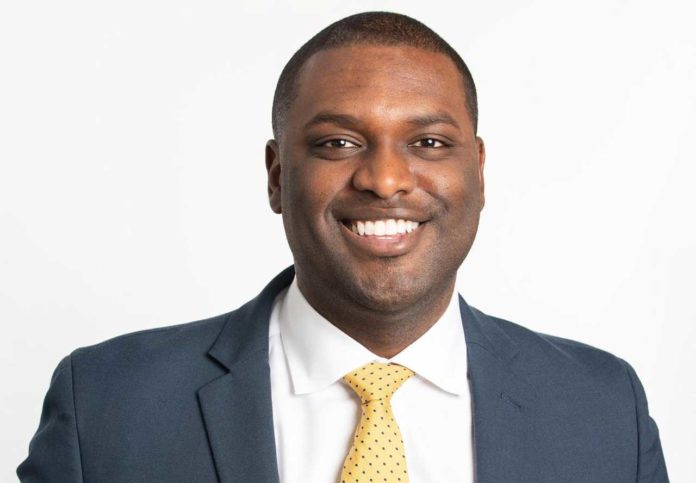Weeks of protests nationwide since the murder of George Floyd in Minneapolis have been a crash course for America on structural racism and its impact on Black and brown Americans. Those protests have brought more than just a call for change — they are bringing change. The June 23 New York primary is one example of that change, as Congress came one more step closer to having more Black, Latinx, and gay representation.
Three highly contested Democratic House races have resulted in what will likely mean a major demographic shift come January. Three insurgent progressive candidates — all Black men, two of them gay — have won their respective races.
The biggest upset was in the 16th District where Jamaal Bowman, a 20-year educator and activist from the Bronx, ousted incumbent Eliot Engel by a nearly two-thirds margin. Engel has been in Congress since 1989. Bowman, who supports a raft of progressive initiatives, said he “wants to see the United States adopt a kind of Marshall Plan for climate change, jobs, housing and education.” Bowman received an unqualified endorsement by the New York Times.
Ritchie Torres, 32, provided another huge upset in the race for an open seat in the 15th Congressional District, located in the South Bronx. A Black Latinx gay man, Torres currently represents the district in City Council. Elected in 2013, he is the first openly gay candidate to be elected to legislative office in the Bronx, and is the youngest member of City Council.
Torres’s expected win is especially sweet as the primary had 12 candidates, one of whom, Ruben Diaz Sr., was the favorite to win. Diaz is a native Puerto Rican who has been a state senator and currently represents the 18th District in City Council. But he has a long history of homophobia and is virulently anti-abortion. That Torres, 55 years Diaz’s junior, rose to the head of the pack of so many candidates is telling: Torres has been a highly effective member of City Council, and his progressive politics will bring a fresh vision to the district.
As Torres noted on his Twitter page, “The triumph of an openly LGBTQ candidate over a pro-Trump homophobe like Ruben Diaz Sr. would be poetic justice. As a Congressional candidate, I can think of no better way to celebrate #PrideMonth than to retire the politics of fear and hate that Diaz Sr. represents.”
Torres’s personal history has been very much a part of his storied run for Congress. Torres’s father is from Puerto Rico, his mother is Black and he was raised by his single mother in public housing in the East Bronx. In an interview with the New York Times in July 2019, Torres said he realized he was gay in junior high school, but feared homophobic violence.
In the 17th District, Mondaire Jones, a Black gay man, faced down seven other candidates to replace beloved Congresswoman Nita Lowey, who is retiring after 31 years in office. Like Torres, Jones was raised by a single mother who worked three jobs. The family was forced to rely on food stamps and public housing. But Jones, who began his activist work in junior high for the NAACP, rose to attend Stanford and Harvard Law School.
At 33, Jones is already a veteran of D.C. politics, having worked in the Obama Administration’s Department of Justice, where he specialized in judicial nominations.
Jones says he wants a broader conceptualization of the needs of LGBTQ people that includes all areas in which LGBTQ people face marginalization: healthcare, housing and education.
These three seats are all well-established Democratic strongholds, so while the general election is not until November, the winners of the primary are presumed to be the winners of the seat. While none has declared victory yet as the full tabulation of mail-in votes will not be released until June 30, the margins are impressively wide in each race, with Bowman at 60.9 percent, Jones at 44.8 percent and Torres at 30.5 percent with 100 percent of the precincts counted from the primary.
Jones would be the first out gay Black congressman and Torres the first out gay Black Latinx congressman. The elections of all three men will mean more representation for both Black and Latinx Americans, as well as much-needed LGBTQ representation in Congress.

